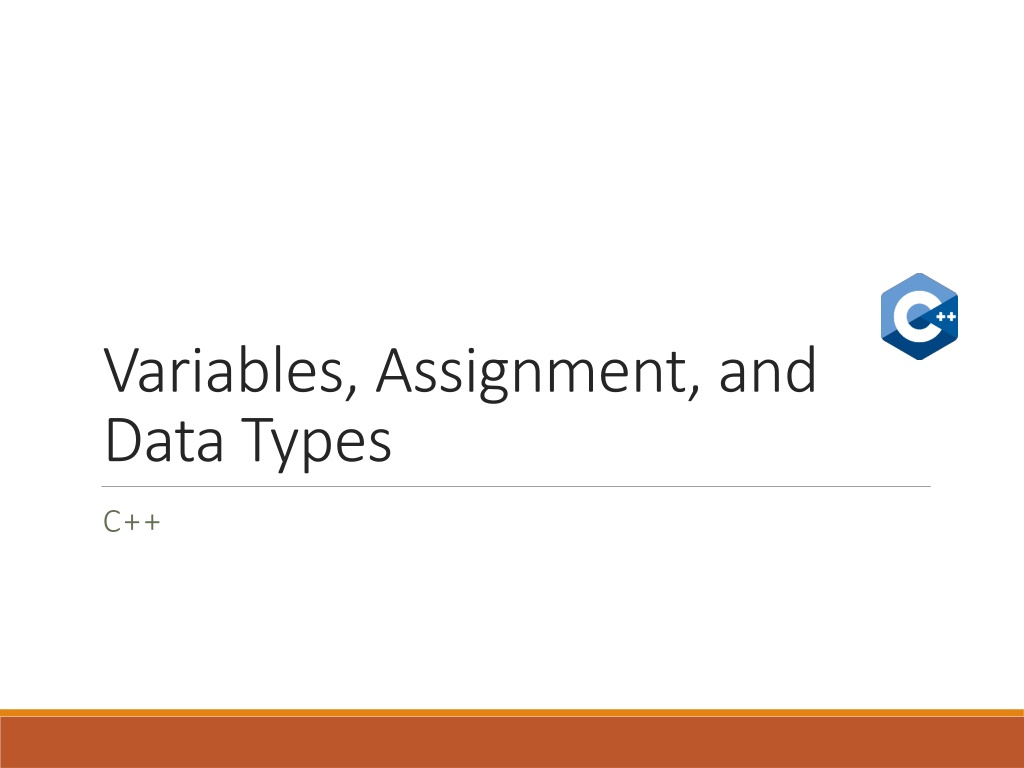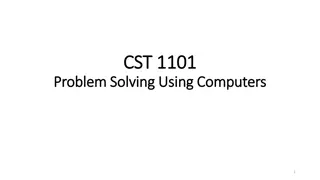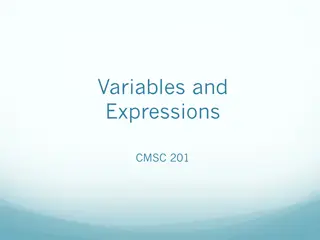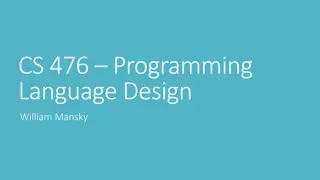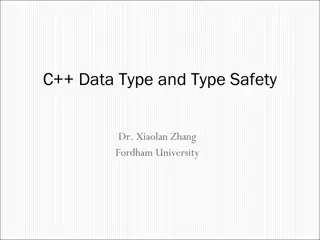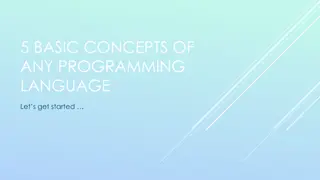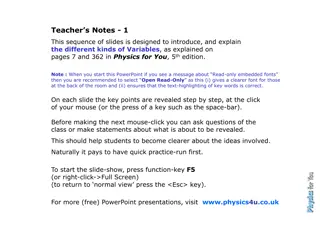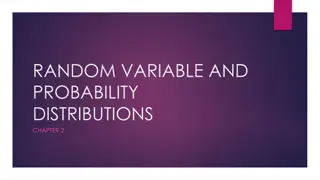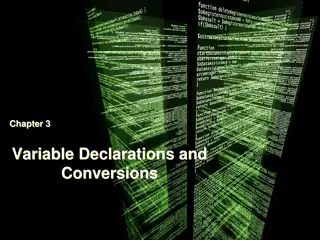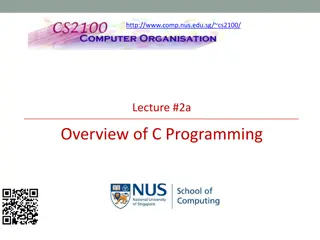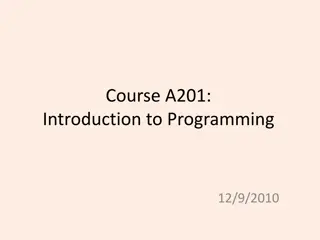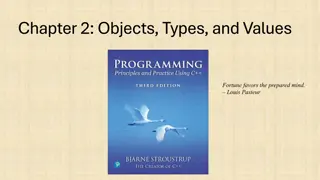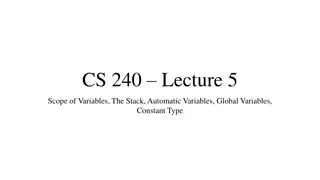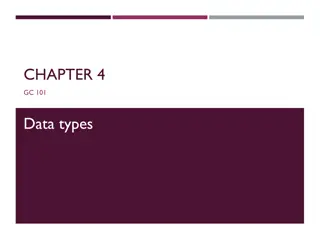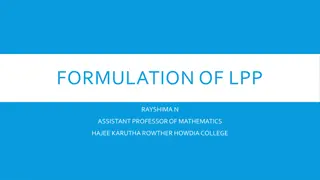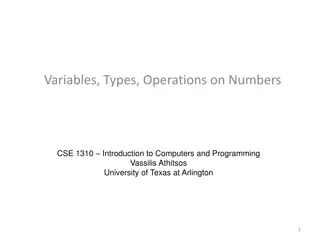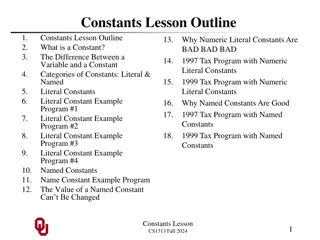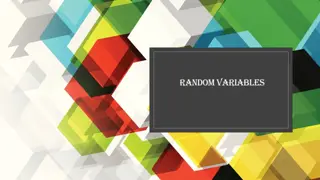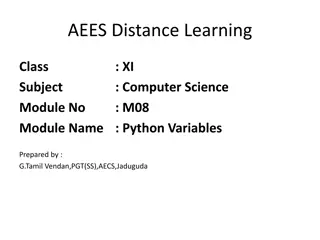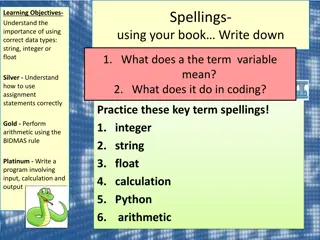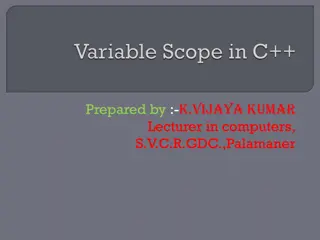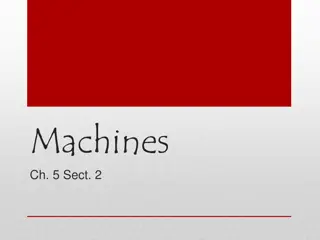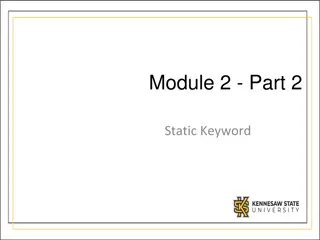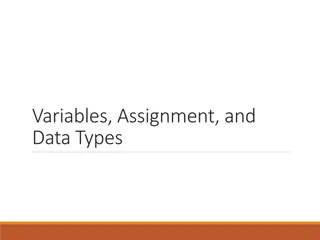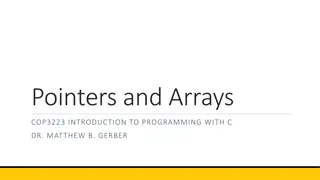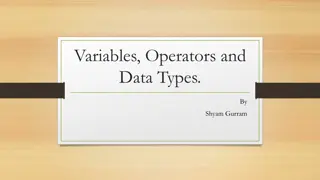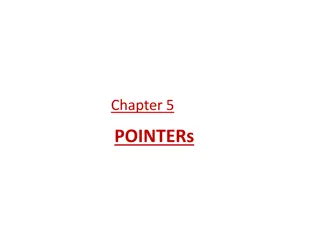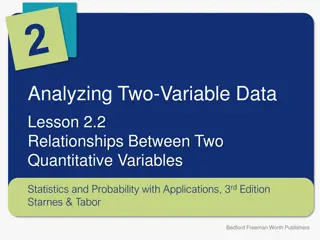C++ Programming Essentials: Variables, Data Types, and Output
Understanding variables, data types, and printing output in C++ is crucial for beginners. This tutorial covers essential concepts such as assigning values, handling strings, using escape sequences, and practical examples like counting down and displaying text creatively. Dive into the world of C++ with this informative guide!
Download Presentation

Please find below an Image/Link to download the presentation.
The content on the website is provided AS IS for your information and personal use only. It may not be sold, licensed, or shared on other websites without obtaining consent from the author. Download presentation by click this link. If you encounter any issues during the download, it is possible that the publisher has removed the file from their server.
E N D
Presentation Transcript
Variables, Assignment, and Data Types C++
Printing strings in C++ (review) cout << Whatever you are, be a good one. << endl; 1. cout is called a stream 2. It s in something called std , (using namespace std) 3. It represents the console/screen data stream 4. The << are things that we re pushing into the stream
Pseudocode CLASS CountDown BEGIN METHOD Main() BEGIN s1 = "Three... " s2 = "Two... " s3 = "One... " s4 = "Zero... " PRINT(s1 + s2 + s3 + s4 + "Liftoff!") PRINTLINE() PRINT("Houston, we have a problem.") END Main END CountDown Output: Three... Two... One... Zero... Liftoff! Houston, we have a problem. Ps
In C++ #include <iostream> #include <string> using namespace std; int main() { string s1 = "Three..."; string s2 = "Two..."; string s3 = "One..."; string s4 = "Zero..."; cout << s1 << s2 << s3 << s4 << " Liftoff!" << endl; cout << "Houston, we have a problem." << endl; } Output: Three... Two... One... Zero... Liftoff! Houston, we have a problem.
Escape Sequences Printing and escape sequence prints a special character in an output string. Common escape sequences: \b backspace. (e.g B\bsecz\bret prints what?) \t tab \n newline \r carriage return \ double quote \ single quote \\ backslash \a alert (which only sometimes works try it!)
In C++ #include <iostream> using namespace std; int main() { cout << "Roses are red,\n\tViolets are blue,\n" << "Sugar is sweet,\n\tBut I have \"commitment issues\",\n\t" << "So I'd rather just be friends\n\tAt this point in our " << "relationship." << endl; } Output: Roses are red, Violets are blue, Sugar is sweet, But I have "commitment issues", So I'd rather just be friends At this point in our relationship.
Pseudocode // Prints the number of keys on a piano. CLASS PianoKeys BEGIN METHOD Main() BEGIN keys = 88 PRINT("A piano has " + keys + " keys.") END Main END PianoKeys Ps Output: A piano has 88 keys.
In C++ #include <iostream> using namespace std; int main() { int keys = 88; cout << "A piano has " << keys << " keys." << endl; } Output: A piano has 88 keys.
Pseudocode // Print the number of sides of several geometric shapes. CLASS Geometry BEGIN METHOD Main() BEGIN sides = 7 PRINT("A heptagon has " + sides + " sides.") sides = 10 PRINT("A decagon has " + sides + " sides.") sides = 12 PRINT("A dodecagon has " + sides + " sides.") END Main END Geometry Output: A heptagon has 7 sides. A decagon has 10 sides. A dodecagon has 12 sides. Ps
In C++ // Print the number of sides of several geometric shapes. #include <iostream> using namespace std; int main() { int sides = 7; // declare and initialize cout << "A heptagon has " << sides << " sides." << endl; sides = 10; // assignment statement cout << "A decagon has " << sides << " sides." << endl; sides = 12; // assignment statement cout << "A dodecagon has " << sides << " sides." << endl; }
Constants Use all CAPITAL LETTERS for constants and separate words with an underscore: Pseudocode: CREATE TAX_RATE = .05; C++: const double TAX_RATE = .05; C++: #define TAX_RATE .05 Declare constants at the top of the program
Example in C++ Example in C++ #include <iostream> #include <string> using namespace std; int main() { string myStr = "Whats up, Doc?"; cout << myStr.length() << endl; // 14 // Note: if strings are equal, this would return 0 cout << myStr.compare("Hello") << endl; // 1 cout << myStr.find('s') << endl; // 4 cout << myStr.substr(2, 7) << endl; // ats up, }
